Tiny Space: The Berlin startup that wants you to work at the park
Little wooden cabins with 5G and discounted coffee. What’s not to love?

Sign up today and you will receive a free copy of our Future Focus 2025 report - the leading guidance on AI, cybersecurity and other IT challenges as per 700+ senior executives
You are now subscribed
Your newsletter sign-up was successful
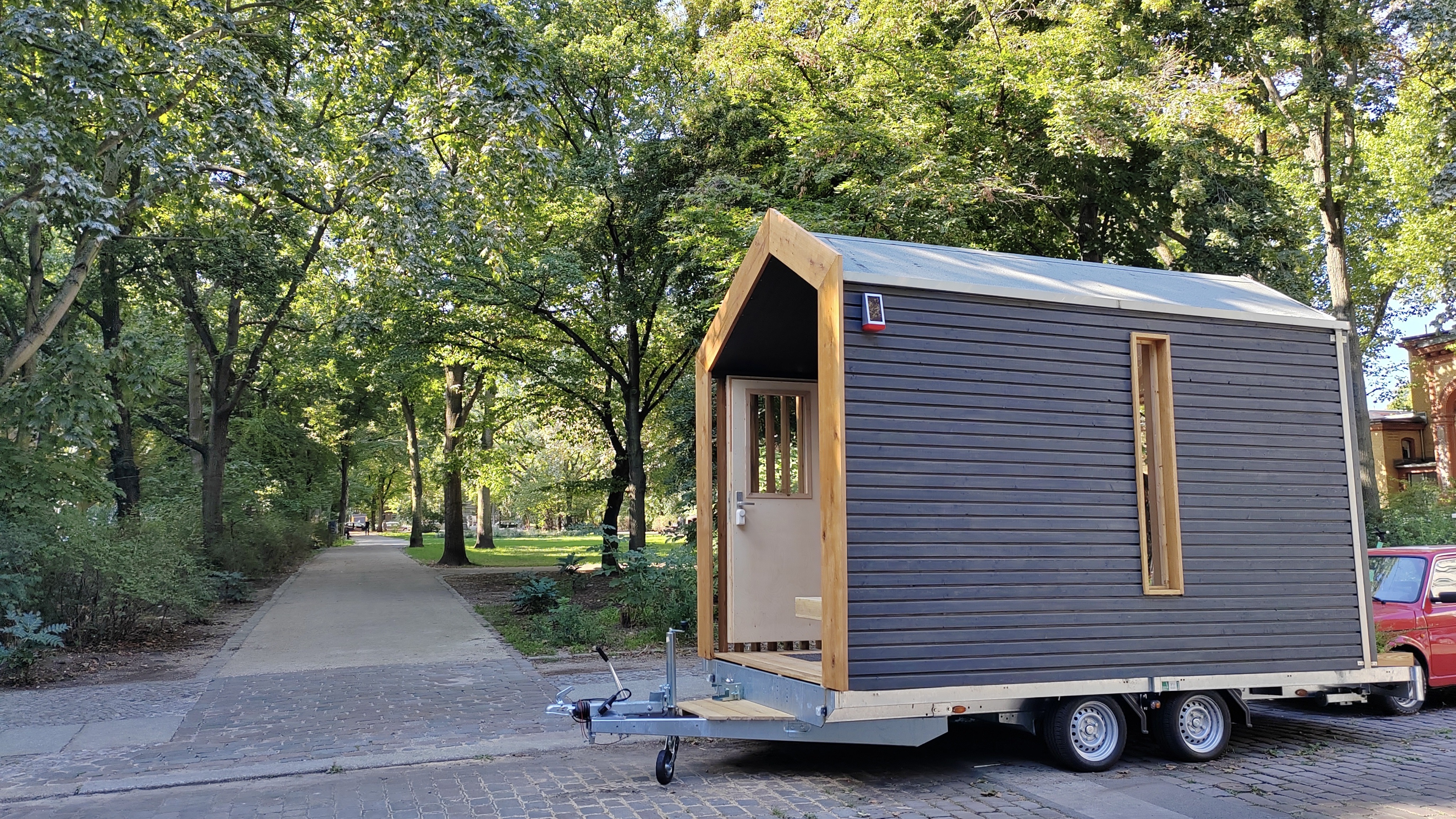
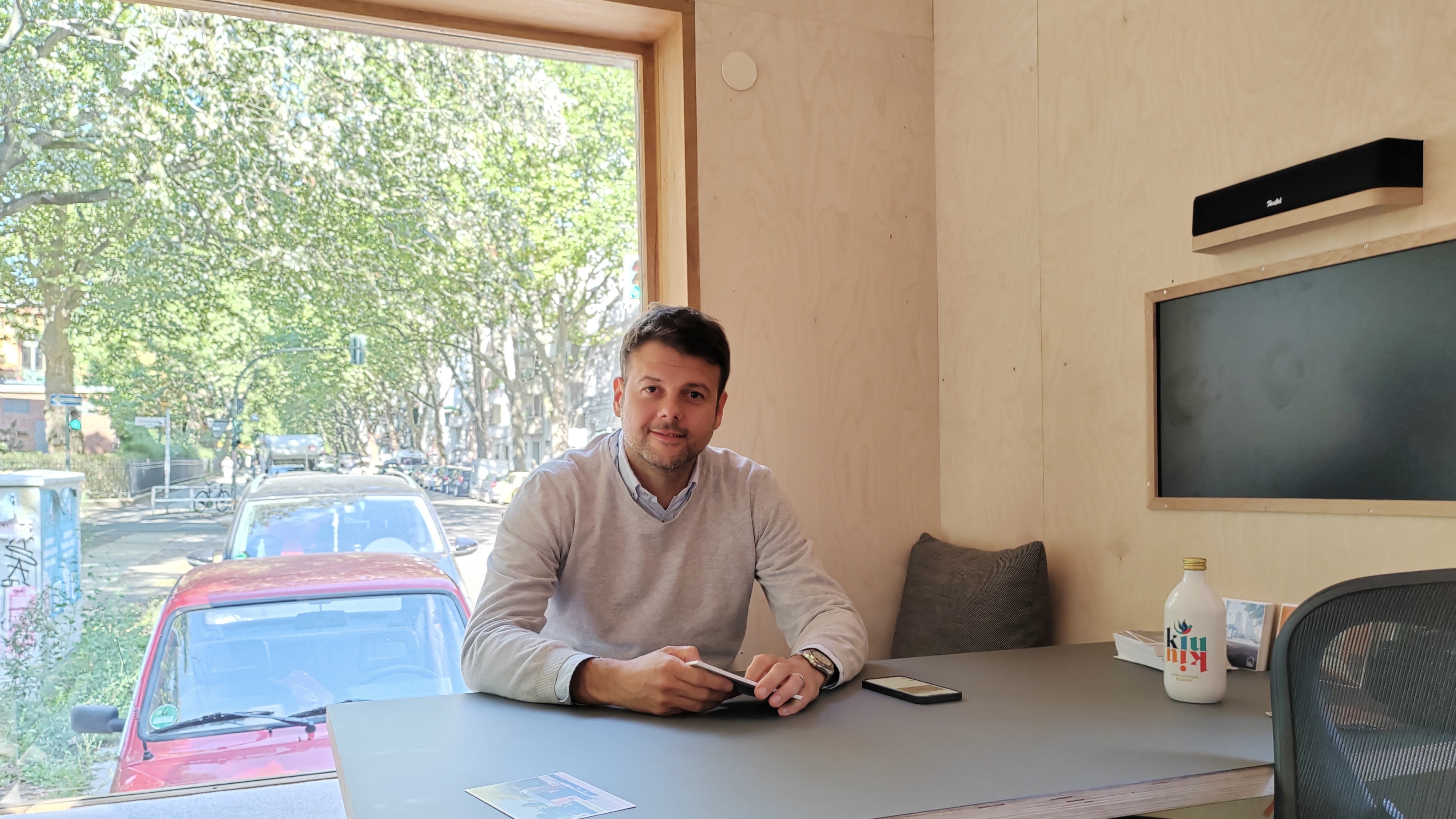
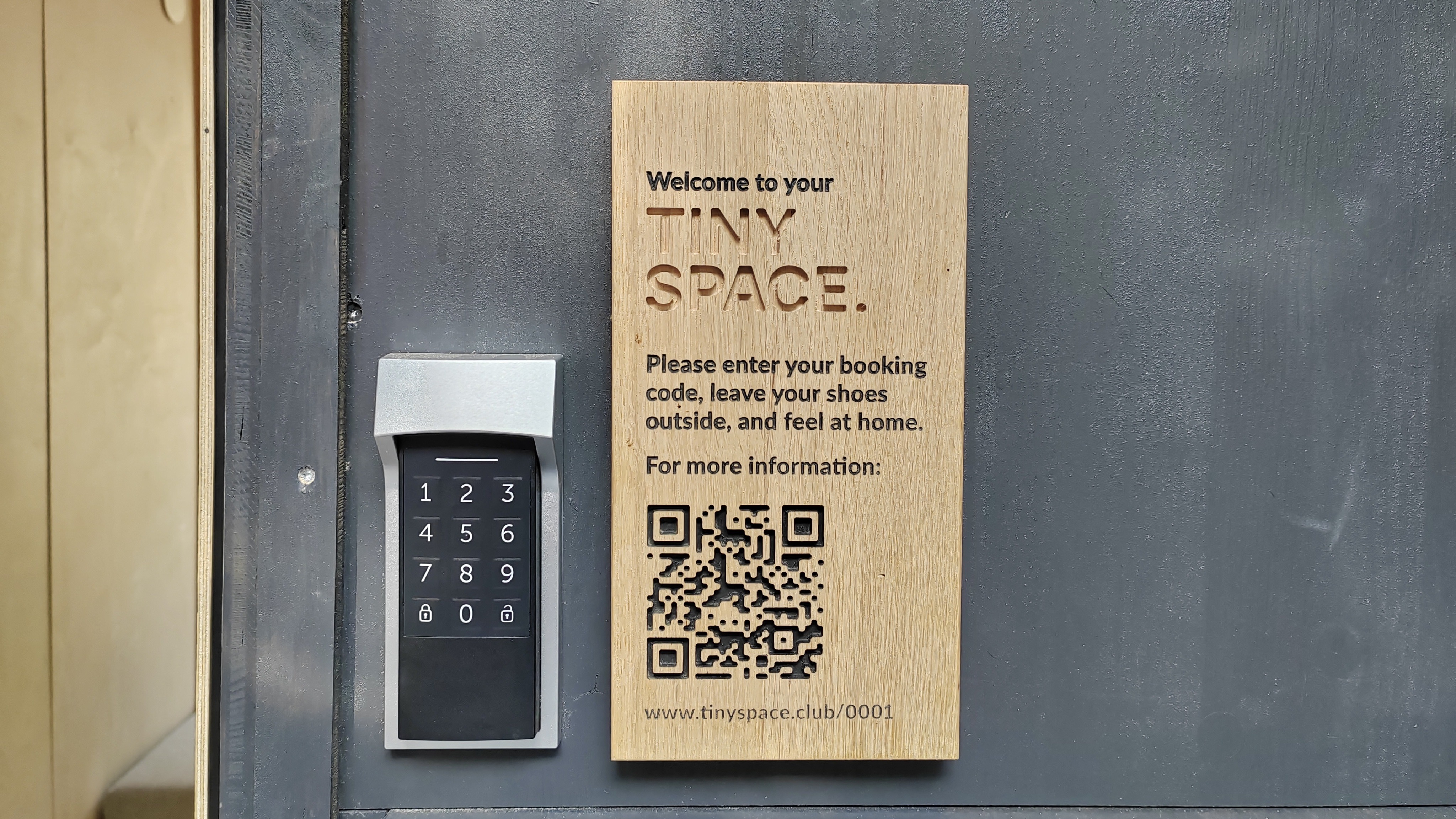
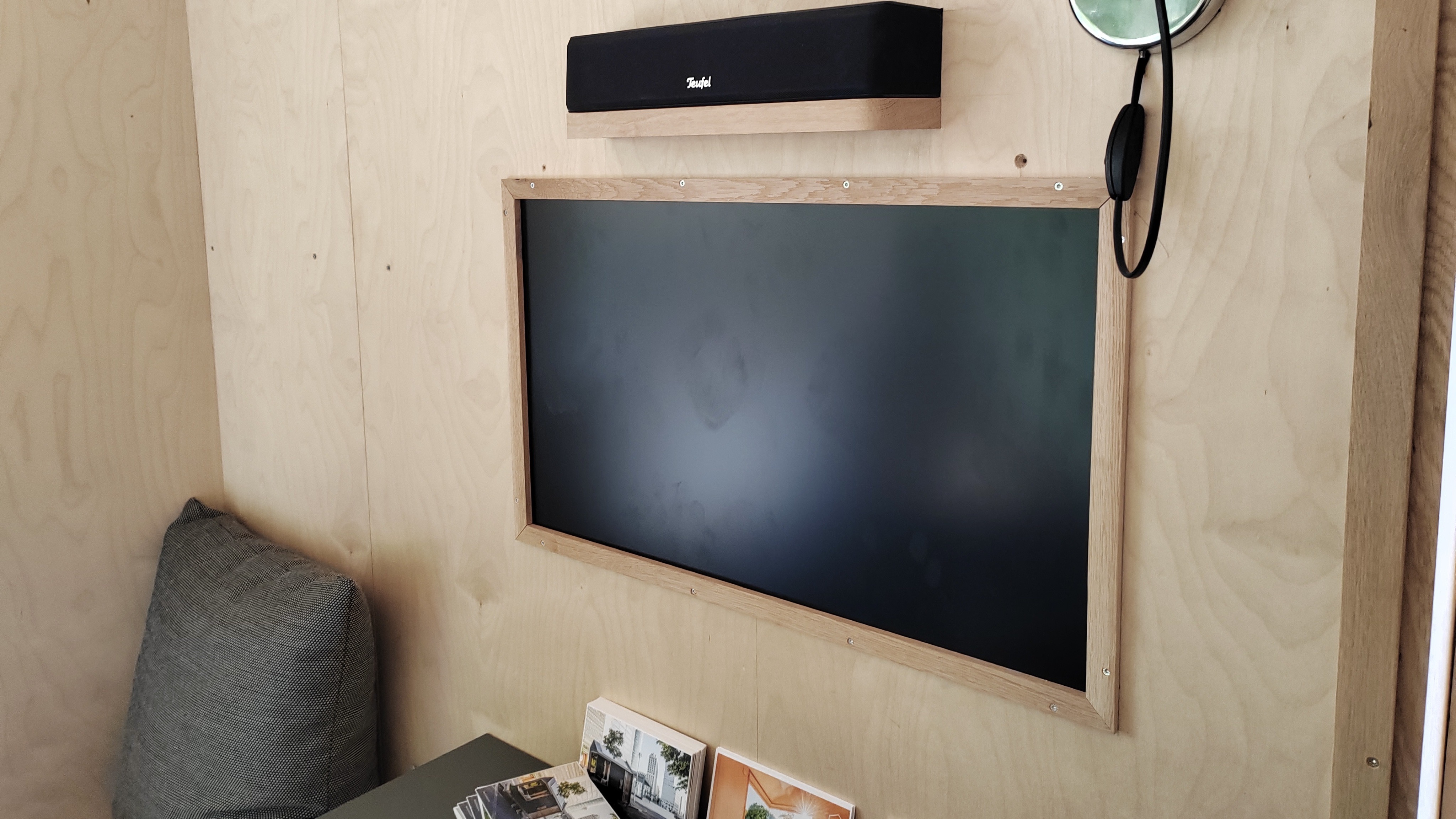
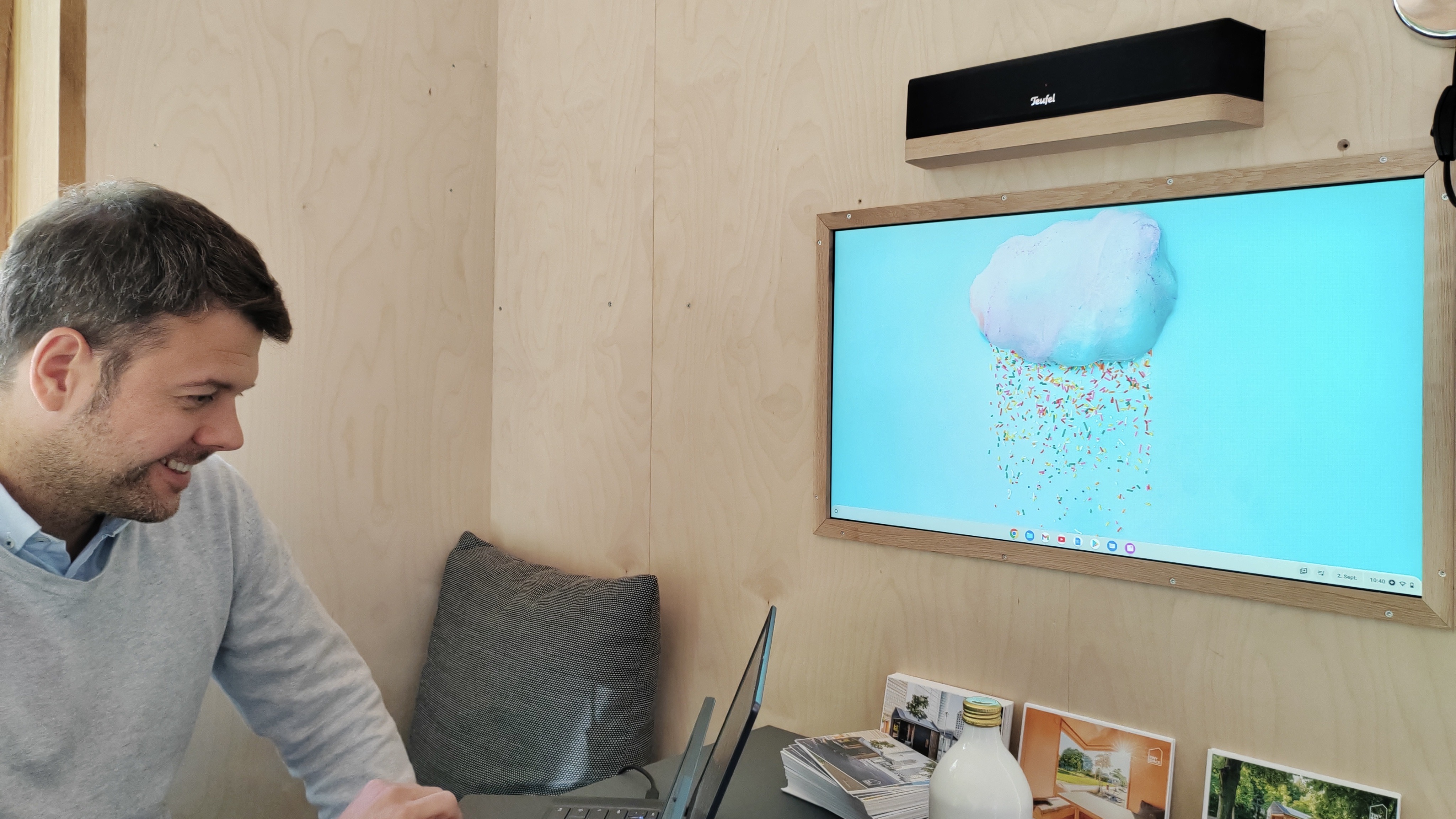
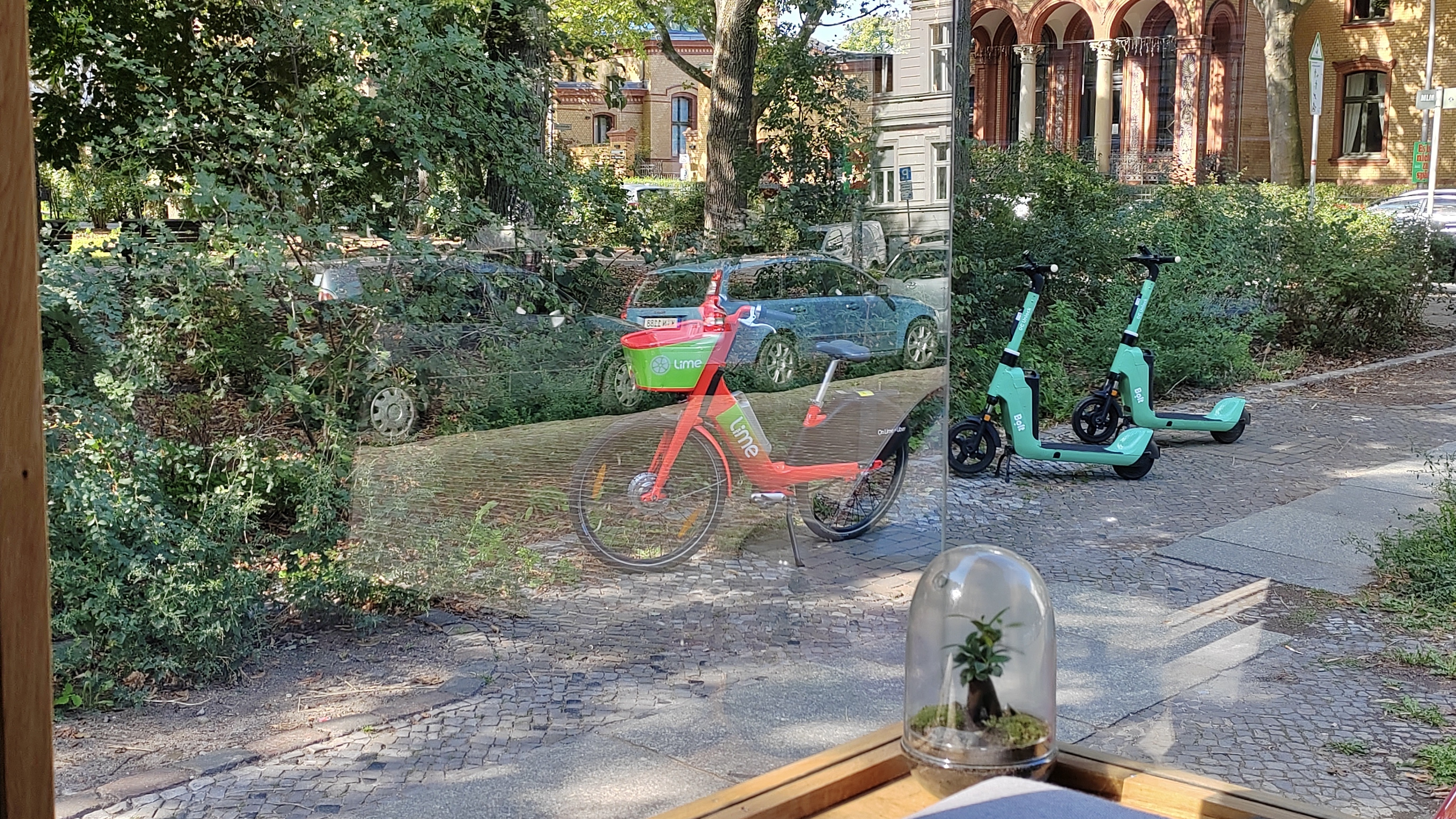
The world is currently chewing through a never ending argument about where, exactly, people should be doing their jobs. There are both benefits and downsides to working from home or the office, but a small Berlin-based startup would like you to know one thing: these are not the only options.
Hans-Gert Stuke and Tim Jaudszims, the managing directors of Tiny Space, see hybrid work a little differently. They feel there is an in-between that can offer all the benefits of the office, and city life, but with the privacy and convenience of home. Their idea, which they claim benefits nature and local communities too, is, quite simply, a wooden cabin next to a park.

We meet Stuke inside the company’s first prototype, which was set up by the Wrangelbrunnen park in central Berlin. On first impressions, the cabin is quaint and smells like a brand new shed, with a Tardis-like quality in that it looks much larger on the inside. Stuke sits at a table that can be folded away, with his back facing a large corner window. He’s unable to see the many passersby that are briefly distracted by the unusual little house parked on the side of the road.
The cabin could fit at least eight, possibly ten, people, although it might need more seating. In truth, it looks a tad underfurnished, presumably because it’s a prototype, with just a speaker, table and monitor built into the side wall. There is decent lighting in the ceiling – solar powered – although the corner window beautifully illuminates the space. Eventually, Stuke points out, there will be some kind of blind or curtain system in place for privacy. But, for now, we can enjoy a peaceful view of dogs playing on the grass and the tall trees waving in the gentle breeze.
The night before, the cabin was some five miles away outside the lively Bikini shopping centre for a promotional event with its partner, Teufel, a Berlin-based electronics manufacturer that provides the speakers for the cabin. However, the aim is to have this one, and more, serve as stationary coworking spaces dotted throughout the city.
A tiny house by the park
RELATED RESOURCE
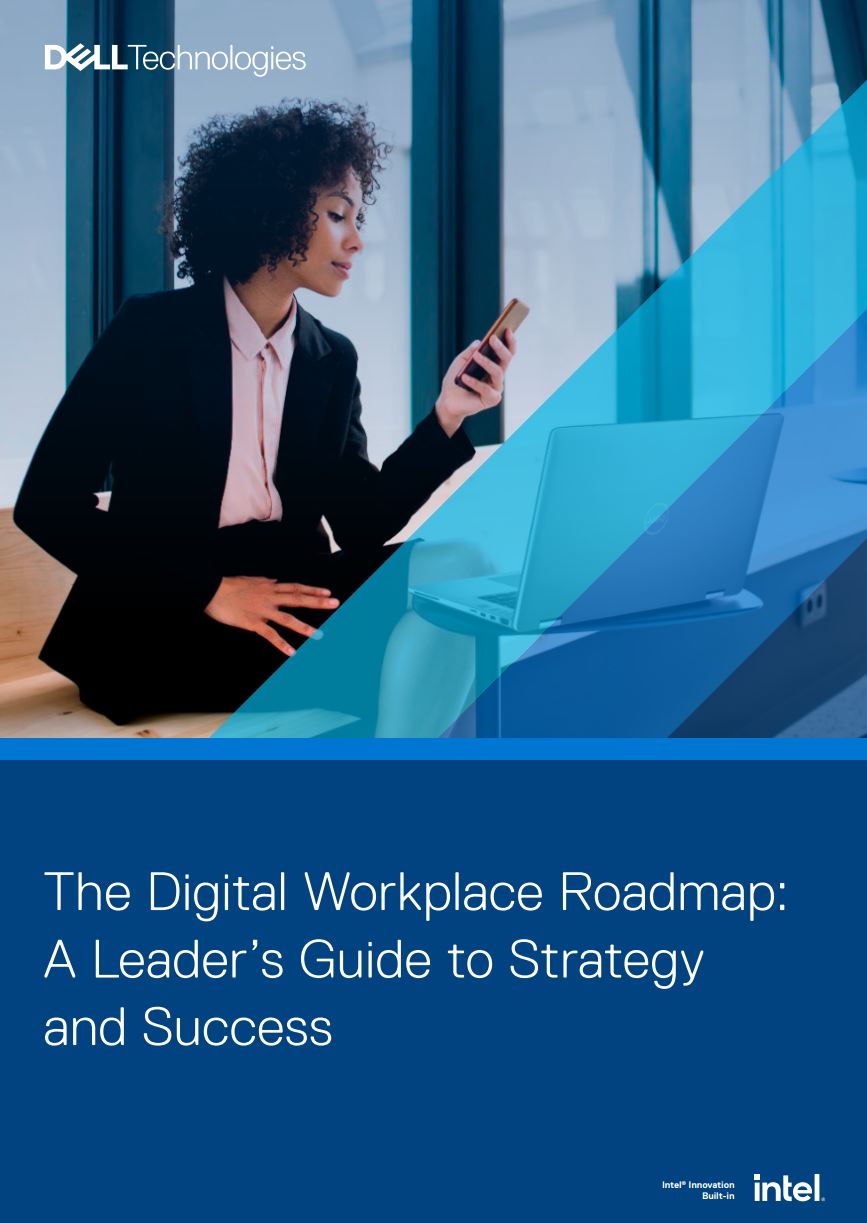
Stuke is something of a seasoned entrepreneur, having previously built a MedTech startup with some 90 employees. When time came to move on and search for a new project, he noticed there was a unique opportunity within the hybrid work space.
“We were looking at different coworking spaces in Berlin,” Stuke explains. “But we didn't really find any cool coworking spaces, and the entire process of getting into one was not nice. The places were not nice, and it was relatively expensive. The worst thing was that you couldn't be fully on your own; if you wanted to book a meeting room, that would cost you like €14 an hour.”
Sign up today and you will receive a free copy of our Future Focus 2025 report - the leading guidance on AI, cybersecurity and other IT challenges as per 700+ senior executives
At this point, Stuke mentions the third co-founder of Tiny Space, the person that actually built the cabin, Moritz Jüdes, the company’s technical director. Jüdes runs another small company in Berlin that creates structures out of wood. It was his desire to find a ‘tiny space’ in which to work that brought all three together.

One day, Jüdes said he had “booked a tiny house” where he could shut the door and everything out, according to the company’s website. Jaudszims was fascinated by the idea, but that was all it was – an idea. Jüdes hadn’t actually booked anything because it didn’t exist – so they set about knocking one up.
The concept of Tiny Space and its cabins, however, works on three core principles. Firstly, the cabin is truly tiny, at just 6.2 square metres. Secondly, the window, which will always be in the corner of the cabin, is large enough to take in the full surroundings. Finally,the cabin itself is self-sustainable and even beneficial to its environment.
That last point is one its potential partners need to bear in mind as the cabins will only be fitted with products from companies that share the same eco friendly attitudes. Tuefel, for example, powers its stores and offices with 100% renewable energy from independent plants. Similarly, the cabin has a large ‘green wall’ that extracts carbon dioxide (CO2) from the surrounding area. As Stuke explains, the wall will support a type of plant that absorbs up to five trees’ worth of CO2.
The community cabin
The company wants between five and ten cabins actually fixed around one of the city’s many green spaces. Cabin number two is currently under construction, with hopefully 20 built by the end of the year. These will then be available to book on an hourly basis.
“The price will be pretty aggressive,” Stuke says. “We will charge each customer €10 euros per hour to stay here.” That, he adds, is not dependent on how many are using the cabin; a group of five, for example, pays the same hourly rate as one person.It will also be a simple case of checking availability and booking using a mobile app.

The cabin’s monitor works over Apple TV or Chromecast, with a USB or HDMI cable, so users can just plug in their own laptops and get on with a video meeting or collaborative projects. There will also be a 5G-enabled router in each, with that connectivity reaching around the park to offer visitors free connectivity, which, frankly, sounds too good to be true.
The community element is key for the founders. For the prototype cabin, there will be a partnership with the local coffee shop to offer discounts to Tiny Space customers looking to grab a brew for work. Conveniently, they will also allow them to use their bathroom facilities as there isn’t any plumbing in the cabins.
Both Stuke and Jaudszims are keen on expansion, and both have an interest in taking TinySpace to other European countries. They see the UK as an attractive destination; maybe not London given its condensed infrastructure, but other blossoming tech hubs like Manchester and Leeds, where there are lots of open green spaces.
“We see a significant development still in hybrid and remote work,” Stuke explains. “In the next ten years, people will increasingly look to create their work around life, and not vice versa. It used to be the other way around that the core of your life was work, and the rest of your life, you basically manage around it. We believe this is being turned upside down.”
Bobby Hellard is ITPro's Reviews Editor and has worked on CloudPro and ChannelPro since 2018. In his time at ITPro, Bobby has covered stories for all the major technology companies, such as Apple, Microsoft, Amazon and Facebook, and regularly attends industry-leading events such as AWS Re:Invent and Google Cloud Next.
Bobby mainly covers hardware reviews, but you will also recognize him as the face of many of our video reviews of laptops and smartphones.
-
 How the rise of the AI ‘agent boss’ is reshaping accountability in IT
How the rise of the AI ‘agent boss’ is reshaping accountability in ITIn-depth As IT companies deploy more autonomous AI tools and agents, the task of managing them is becoming more concentrated and throwing role responsibilities into doubt
-
 Hackers are pouncing on enterprise weak spots as AI expands attack surfaces
Hackers are pouncing on enterprise weak spots as AI expands attack surfacesNews Potent new malware strains, faster attack times, and the rise of shadow AI are causing havoc
-
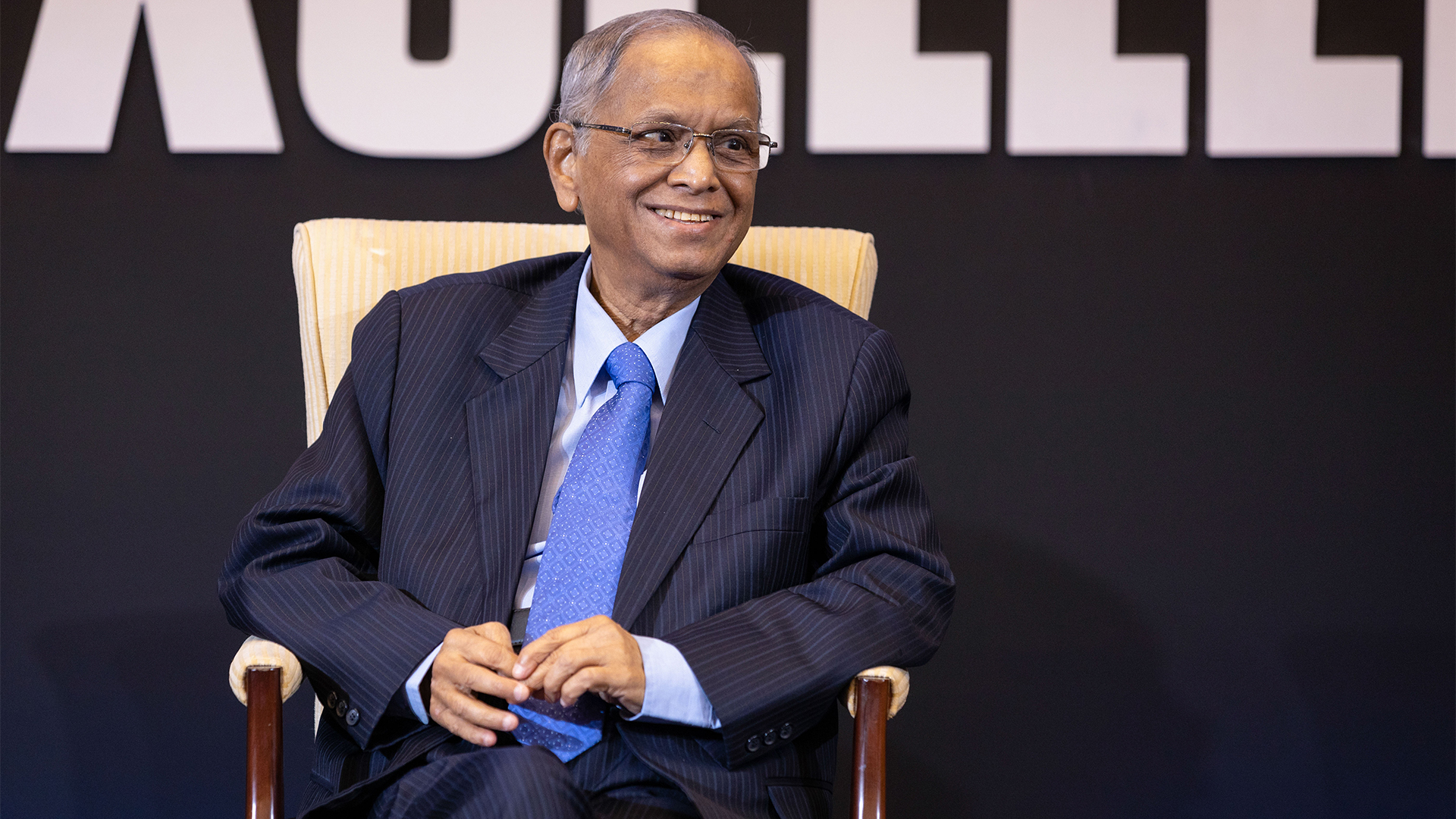 Infosys co-founder Narayana Murthy called for a 70 hour week last year — now he says that’s not enough
Infosys co-founder Narayana Murthy called for a 70 hour week last year — now he says that’s not enoughNews Murthy thinks longer hours akin to China’s '996' approach are the key to success
-
 Microsoft could be preparing for a crackdown on remote work
Microsoft could be preparing for a crackdown on remote workNews The tech giant is the latest to implement stricter policies around hybrid working without requiring a full five days in the office
-
 IT professionals aren’t budging on flexible work demands – and more than half say they’ll quit if employers don’t meet expectations
IT professionals aren’t budging on flexible work demands – and more than half say they’ll quit if employers don’t meet expectationsNews Analysis from Randstad shows 40% of UK-based IT pros have quit over a lack of flexible work options, while 31% of workers globally have done the same.
-
 'The tide seems to be turning towards office attendance': 64% of hybrid business leaders want staff back in the office – but many worry that enforcing RTO mandates will drive employees away
'The tide seems to be turning towards office attendance': 64% of hybrid business leaders want staff back in the office – but many worry that enforcing RTO mandates will drive employees awayAnalysis Many UK business leaders want their staff back in the office more frequently, but they’re scared to implement return to office (RTO) mandates in fear of worker revolts.
-
 Employees are dead set on flexible working arrangements – three quarters would turn down a role that didn't offer hybrid options as work-life balance becomes more important than pay
Employees are dead set on flexible working arrangements – three quarters would turn down a role that didn't offer hybrid options as work-life balance becomes more important than payNews New research shows workers are increasingly demanding flexible working arrangements from employers.
-
 Nearly half of tech workers are seeking new roles – declining employee benefits and reduced flexible working options have staff looking elsewhere
Nearly half of tech workers are seeking new roles – declining employee benefits and reduced flexible working options have staff looking elsewhereNews While salaries are rising for tech workers, other benefits are in decline, leading to a fall in job satisfaction
-
 Untethered: How CIOs and CISOs are paving the way for the new hybrid workforce
Untethered: How CIOs and CISOs are paving the way for the new hybrid workforceWhitepaper Effective techniques to transition from exposed legacy infrastructure to an effective zero trust strategy
-
 Unified endpoint management and security in a work-from-anywhere world
Unified endpoint management and security in a work-from-anywhere worldWhitepaper Learn how to converge endpoint management and security processes and systems to drive efficiency and reduce risk
